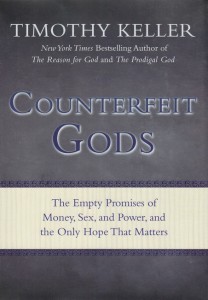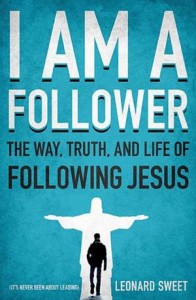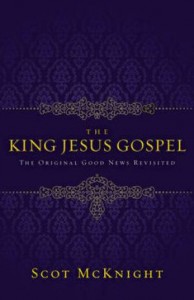Yes, I’m writing a book. No, it will probably never be published. But that’s okay, because I’ll just self-publish it and buy a copy of it on amazon.com.
Anyway, I wanted to post a short chapter that I wrote to the blog to get feedback from folks. I suppose this is as good a way as any to determine if I’m on the right track or not.
The chapter is a reflection on the first sermon I preached at Ember, called The Divine Interruption. The sermon is based on Jeremiah 1, and you can listen to it in the sermon player on this blog. (Just scroll all the way to the bottom.) But you don’t have to listen to it to get this chapter.
So if you take the time to read this chapter, would you mind taking a few extra minutes to give me some feedback in the comments section? Honest feedback (positive or negative) only, please.
•••••
Racing Horses | Chapter 3
Reflections on The Divine Interruption
God is with those he calls. That was the lesson of the previous chapter, which was also the sermon I preached at the first worship service of Ember Church. That is an important truth to remember because when the storms of life come it will be the first thing you forget. When life gets hard, harder than you can bear, your first temptation will be to rage at God, “Where are you?! Where did you go?!”
The second temptation will be to question the veracity of your calling. “Maybe I was never really called to this,” you’ll darkly wonder. You will doubt your calling because the cruelty of your circumstances tells you that God has abandoned you. “If God is with those he calls, and God is obviously not with me, then I am not called.”
I wrestled with both of these temptations in my dark hours, often bouncing between the two in some sort of sadistic game of existential ping-pong. I would rage at God for disappearing when I needed him most, and then I would passive-aggressively despair that I was never truly called to ministry in the first place. Maybe I’m not even saved! Back and forth I would go, spiraling ever downward into an internal chaotic darkness.
The moments of clarity would come, however, when I remembered this message in conjunction with God’s undeniable call on my life. Despite my present circumstances, I could not doubt what God had done in my life up to that point, nor could I deny the deep draw to ministry within my soul. If I’m not teaching a class or preaching a sermon, then I’m writing a blog. If I’m not discipling young believers, then I’m thinking about what I would say to young believers in different circumstances. Ministry is something I can’t not do. It is God’s call on my life, and no amount of ministry failure can undo that calling.
Knowing that I was called then, it naturally followed that God was with me. I couldn’t deny the exegesis of the passage. It was clear as day in the words God spoke to Jeremiah. Perhaps that episode where God called Jeremiah to the prophetic ministry was a one-time, unrepeatable event. Even so, the principle behind God’s promise to be with Jeremiah and to rescue him is undoubtedly general, and applies to all ministers of the Gospel. Sometimes you need your head to pull your heart back from the edge of the cliff, and this was certainly one of those times for me.
Falling
At the beginning of the first chapter I wrote that Ember’s death felt like a failure, like I had stepped out in faith and fallen flat on my face. In the previous chapter I wrote that when you step out in faith it is not solid ground onto which you land, but rather the arms of God into which you fall. So which is it? Did I fall on my face, or did I fall into the arms of God? The answer, I believe, is “Yes.”
I fell on my face in the sense that Ember didn’t work out like I had hoped or planned, and the death of Ember was very painful for me. I also felt like a bit of a fool, seeing as how I couldn’t make the church thrive and survive, despite the near impossible circumstances. There’s a part of me that believes that, now that I’ve failed as a church planter, I’ll never be able to get another job in ministry again, and that I don’t even deserve one.
On the other hand, I fell into the arms of God in the sense that I was depending on him at a level I hadn’t experienced before. Even though God didn’t come through for me in the way that I wanted him to, my faith has been deepened. You never really know how sweet the still waters are until you’ve passed through the Valley of the Shadow of Death. I also found, by laying Ember down, how redemptive failure and suffering are kingdom victory. I discovered how trials can be grace.
Is it possible that God would let us fall on our faces in order to teach us to trust him even more? I think so. In ways that seem backward and counterintuitive to us, stepping out in faith and falling on our faces is the same as falling into the arms of God. There are times when failure is the purest grace we can receive.
Success and Faithfulness
Success isn’t the point. It has never been the point. The metrics of the kingdom of God are in conflict with the metrics of the evangelical church. When Jesus says, “few are they who find [the path to life],” how can we obsess over how big our churches are? Shouldn’t we assume that the majority of the people who are already within our churches are doomed to spend eternity apart from God?
But I digress. Faithfulness is the point, not success. And it’s at least possible that some of the most faithful saints were also some of the most spectacular failures – so much so that we may have never even heard of them. If God has called us to an impossible task, then success is removed from the equation and all that is left for us is to be faithful.
In my experience, faithfulness meant laying the church plant down and becoming more present to my family in their time of need. Even though it was obviously the right decision, it still felt like failure. I suppose faithfulness will feel like failure sometimes.
Isaiah the prophet likely experienced this. God even prepared him for it by telling him, right from the beginning, that the people won’t listen to him and they won’t change their ways. We learn at the very beginning of Jeremiah’s book that he failed, too. After all, if he had succeeded in bringing Judah to the point of repentance, they would not have been sent into exile in Babylon. In fact, none of the prophets were able to stem the tide of God’s judgment against his people. In that sense, they all failed. Even Jesus failed. He was unable to convince the leaders of Israel that he was the Messiah, and in the end he found himself friendless, crucified like an enemy of the state.
You might be saying to yourself, “But that was the whole reason Jesus came – to die for our sins. He didn’t fail. He accomplished precisely what he set out to do.” That’s true, but how many of our congregations look like Jesus’s congregation? By our own Western, consumer-driven standards, is not the lonely figure of a crucified man the very definition of failure?
Every person – all the prophets, and even his own Son – that God sent to his people failed according to the world’s standards of success and failure. I think we ought to be paying more attention to that reality than we are. I think that ought to tell us something about what it means to succeed and fail in the kingdom of God. As I’ve already written, I believe that redemptive failure is kingdom victory. Our goal should not be to succeed on behalf of God, but to be so faithful to his call and mission that when we fail (because we will) our failure will be inherently redemptive, thus bringing about tremendous kingdom victory in the spirit of the Gospel, the crucifixion (redemptive failure) and resurrection (kingdom victory) of Jesus Christ.
 Bradley Wright, a sociologist at UConn, says, “Not so fast my friend.” He believes that Christians don’t have an image problem so much as pollsters have a numbers problem. He doesn’t believe the polls, and doesn’t think you should either. The date, he claims, indicates that Christianity (and Evangelicalism in particular) is alive and well in this country.
Bradley Wright, a sociologist at UConn, says, “Not so fast my friend.” He believes that Christians don’t have an image problem so much as pollsters have a numbers problem. He doesn’t believe the polls, and doesn’t think you should either. The date, he claims, indicates that Christianity (and Evangelicalism in particular) is alive and well in this country.


